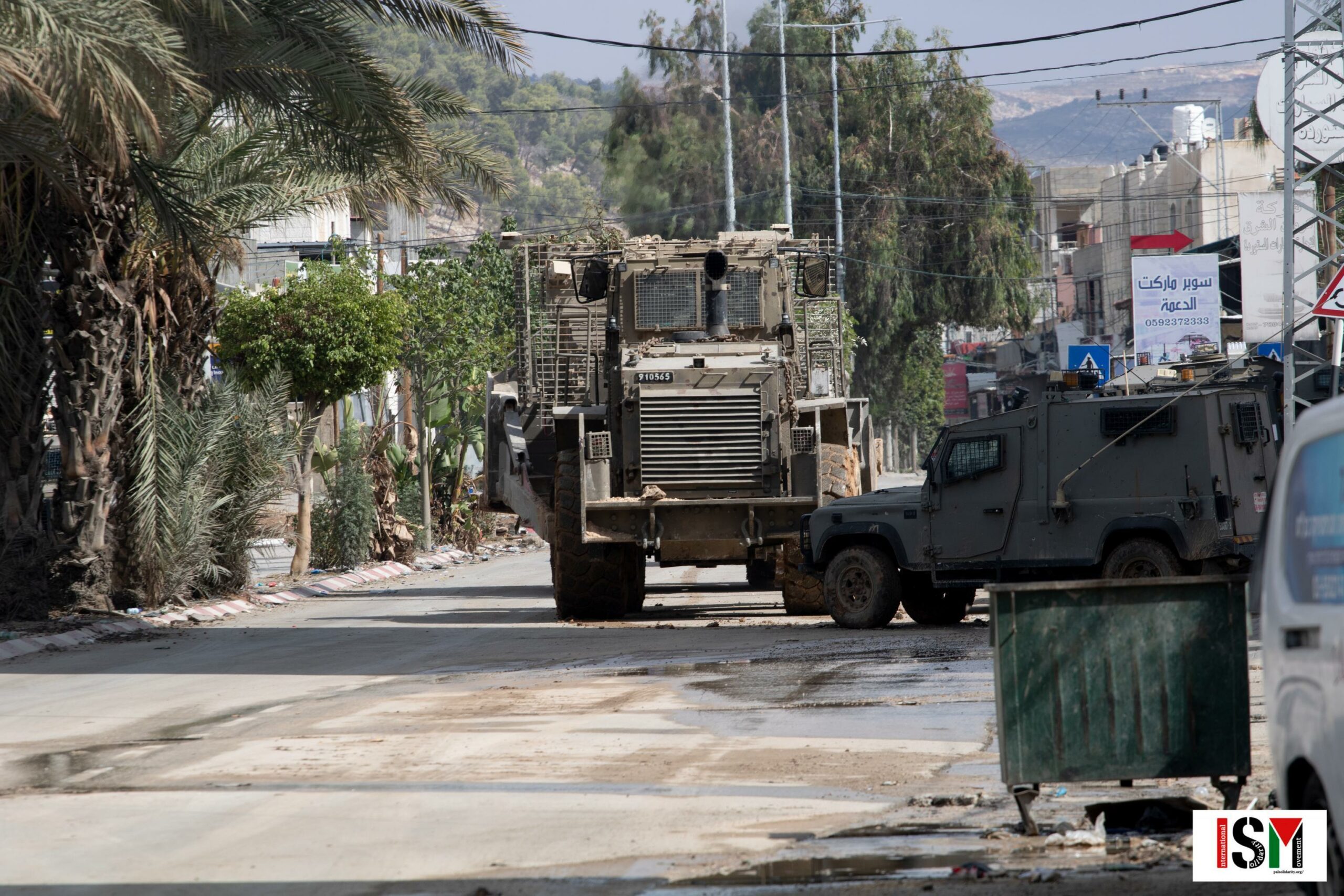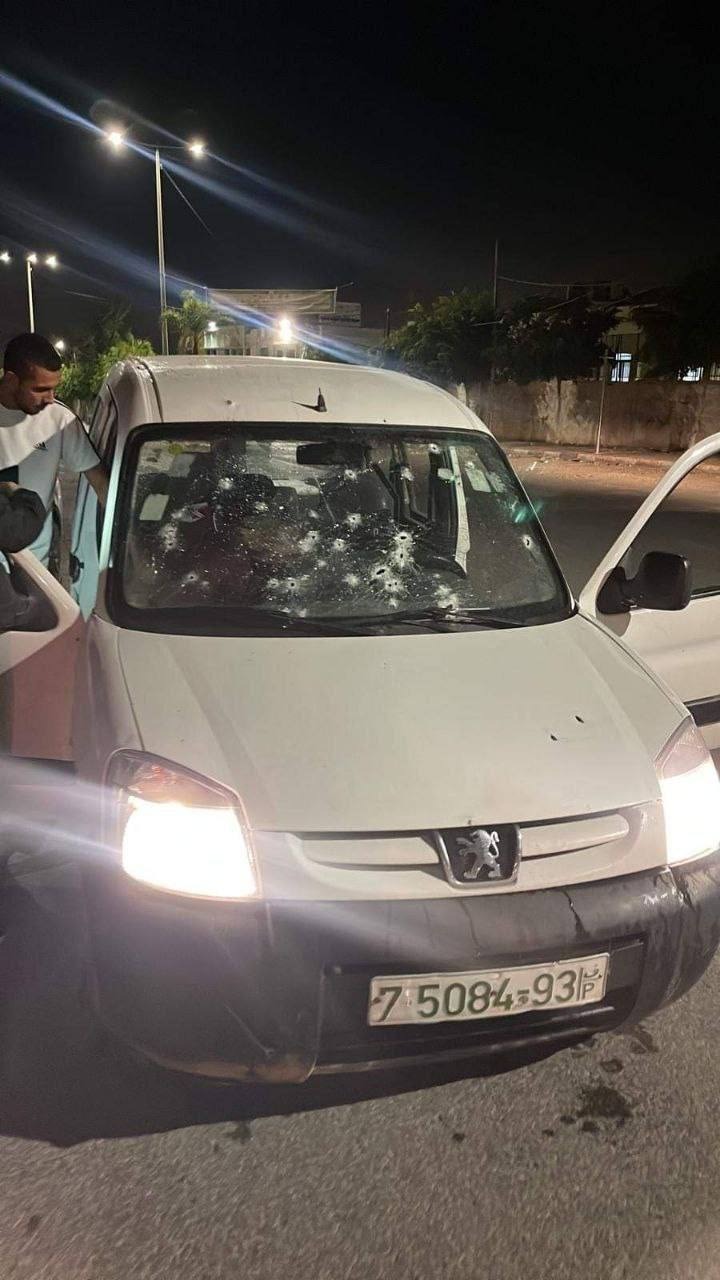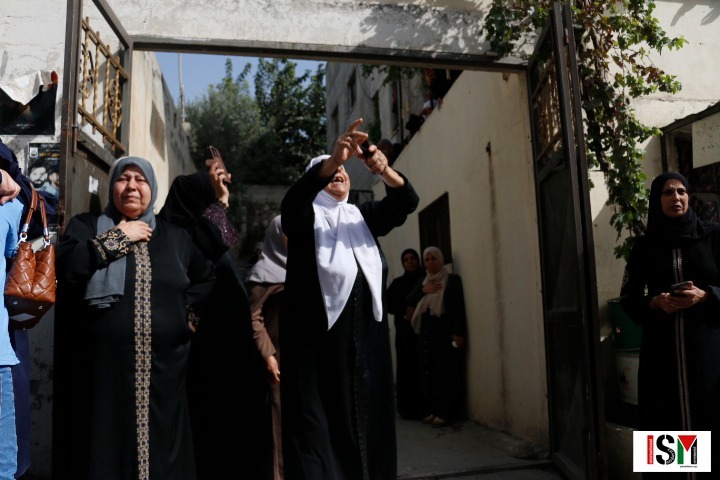Category: Photo Story
-
Israeli crimes around the clock in the West Bank
22 October 2023 | International Solidarity Movement | Zawata by Diana Khwaelid Zawata town-Nablus. On the evening of Sunday, 22-10-2023, the Israeli Occupation Forces (IOF) stormed the town of Zawata, northwest of the city of Nablus. The residents of the town initially spotted Israeli special forces near the town’s cemetery. The Israeli occupation forces…
-

A new massacre in Nour Shams camp, Tulkarm
19 October 2023 | International Solidarity Movement | Tulkarm By Diana Khwaelid The Israeli occupation forces launched a major military assault on the city of Tulkarm, especially on the Nur Shams refugee camp. A curfew was imposed throughout the city for at least 30 continuous hours, and Israeli snipers were deployed in more locations…
-

Israeli snipers target civilians, kill father of 3-year-old in Tulkarm
13 October, 2023 | International Solidarity Movement | Tulkarm By Diana Khwaelid On the evening of Friday, October 13th, 2023, Israeli snipers opened direct live fire on a white civilian car while it was passing near the Sanaoz military checkpoint, in Tulkarm city. Ahmed Abed, who was one of the two passengers in the…

